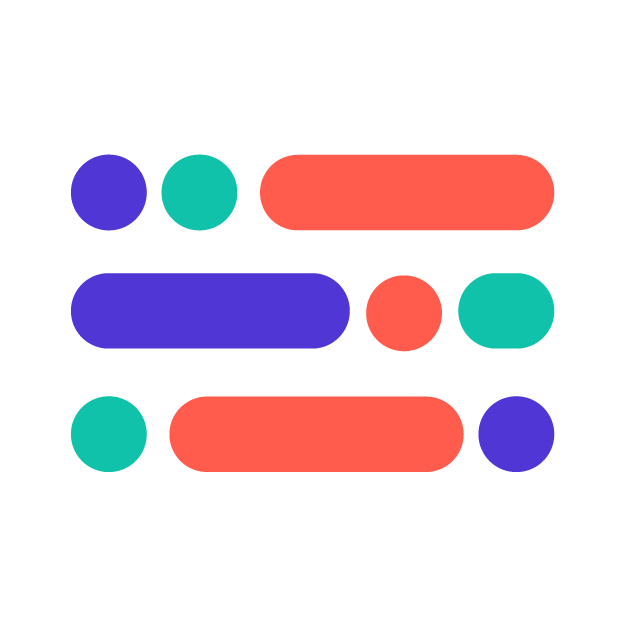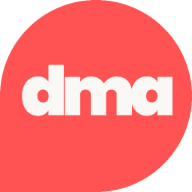For more exclusive content, visit your member dashboard.
Tavia
I'm Tavia Meredith, and I'm a Developer Marketing Program Manager at Google Cloud. Throughout my career, the user has always been important. I started out my career as a community manager for a gaming company and then a few companies later I was managing a user group.
Heather
I’m Heather McCormick and I’m the Global Product Marketing Manager at Google Cloud. We're focused on training and certification campaigns and programs, but we sit within developer marketing overall, so we care deeply about our developer community.
At Google Marketing, we talk about knowing the user, knowing the magic, and connecting the two. We know our users, developers, and technical practitioners who use our Google Cloud products every day, so we get to tell them a little bit about the magic of our products.
The training and certification programs and campaigns we provide help our users know how to learn about our products, how to use them better in their organizations, or find jobs where they can use our products.
Tavia
Heather and I work very closely together on all things developer marketing for Google Cloud. She brings together product marketing excellence and campaign leadership, and I provide support by building online experiences for developers through online events, webinars, live trainings, and videos.
Between the two of us, we're going to talk about:
- The importance of an education-first strategy
- Where the current market is and where it needs to head
- One of our biggest launches in the last year, Google Cloud Skills Boost
- The evergreen campaigns and programs we've been running to keep the drumbeat rolling
- How developer training leads to adoption

Addressing the IT skills shortage
Tavia
By 2030, there’s expected to be a talent shortage of about 85 million people in the IT skills gap. This will potentially lead to huge revenue losses for companies because they don’t have the skilled workforce to be able to compete in the market.
Specifically in cloud technology, 80% of IT leaders point to an unskilled workforce as being the biggest hurdle to overcome both now and in the coming years.
There’s clearly a huge skills gap to address when it comes to IT technical skills, so we need to meet people in nontraditional ways.
Currently, you can go to university and get a degree in computer science or software engineering, but that’s not necessarily available to all. Google has done an incredible job with programs like Grow with Google, where there are certificates for IT support, UX design, and so much more.
At Google Cloud, we're leveraging a lot of that good knowledge and we have some incredible training and certification programs that we're running to help upskill that audience.
We're also targeting many more than just the traditional developer. A developer is somebody who builds and writes code and deploys apps. But we're also talking about DevOps and data professionals such as data scientists, data engineers, analysts, IT admins, and sysadmins.
Most of today’s developers are learning through online resources such as forums, blogs, and videos. There are still folks that are going to university, but there's also been a surge in those taking online courses and certification with providers such as Zero to Mastery, Coursera, Udacity, and Pluralsight. Google Cloud actually has a lot of technology courses on Coursera, Pluralsight, and Udacity.

How Google Cloud is upskilling developers
Tavia
Google Cloud is currently looking at how to make documentation more accessible, available, and easily searchable for any developer project. We’re also doing sample code, tutorials, how-to videos, labs, training courses, webinars, online events, options to talk to an expert, and providing support in public forums such as Stack Overflow and Reddit.
In general, there are a lot of tools you need to be able to help upskill these developers. We have a huge gap in skills and a huge opportunity to train and motivate people to get into technology and provide them with some incredible careers that way.
Technology is ever-changing, so it's not just a one-and-done type of program. It needs to be a continual motion that happens as technology evolves.
Heather
We see a huge opportunity in skilling our developers and technical practitioners on how to use our products. In October last year, Google made a commitment to upskill 40 million people with skills in cloud.
I genuinely felt very privileged and honored to be a part of making this commitment and recognizing this skills gap, especially in new and emerging roles in cloud.
With this commitment, we announced our new learning platform, Google Cloud Skills Boost, to enable skilling at scale.
What is Google Cloud Skills Boost?
Heather
Google Cloud Skills Boost is our definitive destination for Google Cloud learning. We're offering curated, role-based learning paths to make sure technical practitioner roles are accessible.
For individuals already in developer roles or those looking to upskill and move into roles in this area, we wanted to offer those curated, role-based learning paths and give learners the opportunity to work through training courses, hands-on learning labs, and earn badges to prepare for Google Cloud certification, all in one destination.
As part of our launch, we didn't end up doing any paid media. It was very much in the owned and earned media spaces that we got to launch Google Cloud Skills Boost. It showed up across our owned channels, social, and web.

We also worked with our PR and communications team to do some media briefings in the run-up to our flagship event, Google Cloud Next, where we announced this new learning platform and made this commitment to our 40 million upskilling in Google Cloud.
As part of that, we saw great coverage and were picked up in some of the major tech publications. We also published a blog and localized it for several different languages. In the first week, we saw 70,000 folks engaging with the content on that blog.
In addition, we made a promotion available for a 30-day, no-cost trial of the new learning platform. We saw 61,000 people sign up to get started on their learning journey, be that the learning paths that we had available, the light touch learning labs, or the option of doing multiple labs to earn skill badges.
We partnered with Coursera, who wanted to join us in this announcement for skilling to reach millions. They were also offering one month free for our Google Cloud training on their platform, and we were able to include that in our announcement as well.
Going in partnership to market was really great for our reach and for meeting developers and learners where they are already.
Engaging developers through Cloud Learn
Heather
Last year, we announced our inaugural learning event, Cloud Learn, a dedicated digital learning event with global reach. We initially announced Cloud Learn in October and encouraged folks to sign up and come to the event in December.
Tavia
Cloud Learn was all about building that drumbeat of the Skills Boost launch. We wanted to continue that momentum and have another moment in time in December.
What was really great about this event is that we partnered with a lot of our regional field teams and we were able to bring it to multiple languages and multiple timezones to make it a truly global event for training and learning about Google Cloud.
As I previously mentioned, developers for Google are a broad bunch of different personas, so we wanted to ensure that we had content available for different types of learners. We had a data track for developers, DevOps, those just getting started, and IT admins working on migrating over to the cloud.

The event was two days long, so we started off with the foundational content on day one, and on day two we got more hands-on. We had instructors lead live labs, so folks could do the labs simultaneously with the instructor. They were able to get familiar with the product, get their questions answered live, and have that experience we know is very valuable for someone just starting out.
Not only did we have training and skilling content at the event, but we also had self-development content. As much as we want to train developers and get them excited about their skills, we also want to empower them so that they can be successful in their careers.
Heather led the keynotes with some of our customers. We heard from Twitter and Lloyds Bank who both shared great stories about what training has done for their organizations and why it was valuable for them to make that investment. They're able to move faster, outpace their competitors, and launch faster.
Heather
We learned a lot from this launch as product marketers and program managers about what success looks like, as well as things we probably wouldn't do again.
How Google Cloud developed its education-first strategy
Heather
When launching a product, the partnership with your product and engineering teams is really important to understand what you’re launching, how to differentiate that in the market, and how to get those demos early so you can develop messaging that's true to the product experience.

We were working in really close collaboration with the product team and the engineering team on what it was that we were launching with Google Cloud Skills Boost. We worked in close partnership with our brand team on how to position this learning platform because this was our first-party branded experience of Google Cloud learning.
It was also important to work closely with the broader brand studio team on the naming process and get stakeholder buy-in around that as well.
One of our key takeaways was that we wanted to get the best understanding of the product, but as product marketers, we could influence and provide the voice of the user as part of that too.
So, we were able to test and ask questions about the experience because we were developing that messaging and narrative that we wanted to feel was authentically true of the product experience.
When we launched the product, we didn't want it to be a one-and-done. We wanted to show people that there's an opportunity to get started on learning and upskilling with Google Cloud, but there are also multiple opportunities in the future. So Cloud Learn was one of the ways that we did that.
In January, we launched a digital learning campaign that focused on the new learning paths that were available. As part of that, we were trying to reach the different job roles that had that demand such as the cloud architect, cloud engineer, data engineer, and ML engineer.
We had over 10 curated, role-based learning paths that we wanted to make sure folks could get started with at no cost, and ensure they could also prepare for our Google Cloud certification exams.
I partnered closely with Tavia on developing monthly learning webinars that highlighted labs in the learning path. So, if people wanted to come along and ask questions and learn from experts but also have time for a Q&A, we were able to do that as part of the learning journey in community, which we know is incredibly important.
Keeping the drumbeat rolling with evergreen campaigns and programs
Heather
On an ongoing basis, we have evergreen campaigns and programs to make sure learning is accessible for our technical practitioner community. Tavia runs a series of quarterly events and cloud onboards, which are foundational-level content. This content includes how to get started with Google Cloud, talks from Google Cloud experts, infrastructure, data, and ML.
There are also study jams, which are essentially hands-on learning labs that you walk through together with an expert. So we continue to run those as great ways for folks to get started, and then they’ll hopefully continue their learning journey on Google Cloud Skills Boost having attended those events.

We've partnered with the business, broader stakeholders, and developer advocates to find fun and creative ways to do gamified learning. Inspired by Wordle, we wanted to do a daily learning lab and have a challenge around social sharing.
A colleague of ours created Google Clout, a daily learning lab where you’d race against the clock to try and get the best timing to complete the lab and then share it on social.
We found ways to engage our developers by partnering with the business to offer what was called a Learn to Earn campaign. So when they completed learning, they were able to earn exclusive Google Cloud swag.
The value of community champions
Heather
We're always looking for fresh new ways to engage with our developer community where they are and in the ways that they want to learn. We recognize that to reach millions, we need to constantly be thinking of new ways to go to market.
This is a challenge as marketers because we have our standard toolkit: the PR announcement, web channels, and social. So we're always trying to think of new ways and channels to show up differently and in unique, creative ways for our community.
The community often comes to us with suggestions as well. We have a new program called the Innovators Program, which is a way for us to hear from the community, and where our greatest advocates and champions come from.
Whenever they have ideas for learning, they come to us and we ask: Can we scale that? Can we engage the broader community in that? We've seen some really positive results from that.

Developer training leads to developer adoption
Heather
We hope that sharing a little bit about what we've done in Google Cloud with our focus on a developer-first strategy and what we've seen having value and impact has been helpful.
Ultimately, we’ve seen that individuals who are trained actually become great users of our products, and that drives adoption. We’ve also see them become advocates and do the marketing for us, which is much more authentic.
I've heard it said many times that developers don't like marketing, but they do like to hear from their peers and they value the opinions and experiences of their peers.
So, if we can give developers positive experiences where they become our champions and our advocates, I think we're all winning.
As marketers, keeping our content as accessible, creative, engaging, and relevant as possible is important. This is also where we should listen to our community and users and respond to their needs and feedback.
At Google, we’re all about user first; their opinions really matter to us. We constantly want to hear from the developers that are using our products, that are consuming our training, and that are coming to our events and programs.
We love the good feedback, but the tough feedback is actually even better because it makes us better marketers.
What are the things that we've learned and heard from our developer community that have made us think again, adapt, pivot, stop something or start something? I think there's a lot to learn from the community that we've certainly benefited from.







